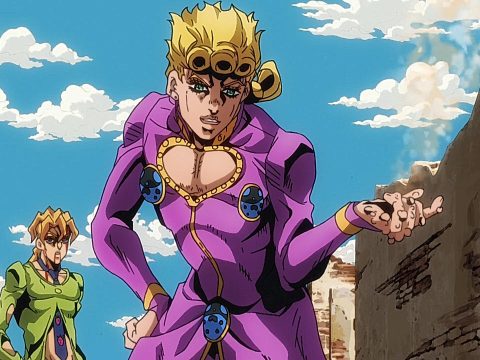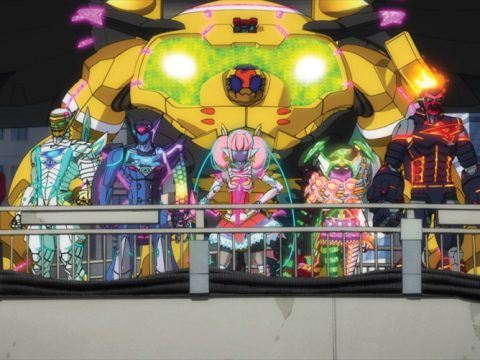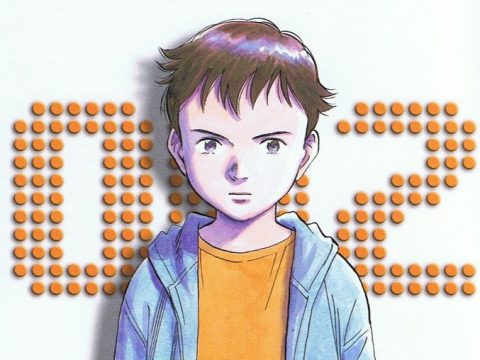The latest issue of Otaku USA magazine is home to a Gatchaman Crowds feature by Caleb Dunaway, and it does a great job of covering the bases of the story and explaining what makes it special in its early episodes. Definitely check that out, because I don’t want to rehash everything Caleb said here, but it’s been a while since it was actually written, and we can now look at Gatchaman Crowds in glorious retrospect.
That means this article contains spoilers for Gatchaman Crowds!

In short: Crowds does rebooting just right. I didn’t warm up to it initially—too much of me was caught up in the act of attempting to visually honor and respect the old series, which is where so many reboots snag themselves in the first place—but by the end of its 12-episode run it became one of my favorites of the year.
Before we dig in further, let’s hang on that notion of rebooting to please everyone. It can’t be done, as I’m sure most are aware, and even attempting to do so is such an arbitrary task. Who is your target audience? You either want to hold a tight grip on the classic anime heads or pull in new eyeballs less familiar with an established franchise. I’m not saying you absolutely can’t have it both ways, but it’s a feat seldom achieved successfully. As much as I was initially put off by the late-night tokusatsu style of the Gatcha team’s suits, for instance, that eventually faded way into the distance as Crowds revealed more of its world and what it has to say about ours.

This isn’t one of those instances where someone has to feverishly declare “wait nine episodes, I swear it gets good!” Crowds is pretty solid from the start, but like any narrative venture it takes a couple chapters for its core concept and characters to meet in the middle with its audience. Once I saw what Crowds was doing—from the stuff on the surface to everything thinly, but smartly, veiled underneath—I was in.
In Caleb’s article he spends some time talking about why Hajime Ichinose is such a special protagonist, and how Crowds could have gone in a wildly different direction had it chosen to follow the typical fiery male lead. Spot on. Hajime is the glue that holds both the Gatchaman team itself together—no matter how much they all try to fight her oddball inclusion at first—as well as the show’s themes. She’s relentlessly optimistic, but she’s also smart as hell and isn’t just a ditz played for laughs. In that way her bubbly enthusiasm belies her intelligence. Moves that first come off as simply impulsive turn out to be much more thoughtful and daring. Hajime’s honesty and glass-half-full attitude leads to her dealing with the show’s antagonistic forces in ways that just wouldn’t happen in other series.
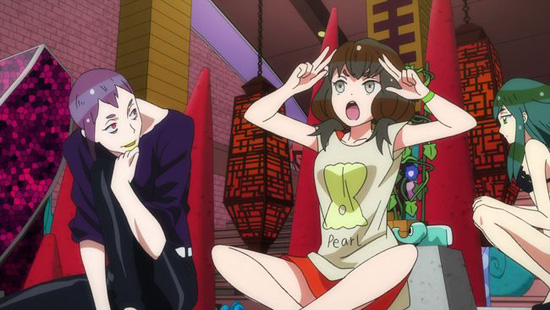
There are myriad shades of influence on Crowds‘ narrative, but it admirably comes into its own pretty quickly. On one hand you have Gatchaman itself, which is an entirely different team when Hajime arrives in the beginning, built on rigidly established rules that are at best enigmatic and at worst legitimately detrimental to society. These are the old school heroes everyone’s familiar with, yet they remain so forcibly shadowed that many doubt they even exist at this point.
On the other hand you have GALAX, a popular social service that makes a game out of helping your fellow man. While GALAX—and its more directly influential and interactive CROWDS system—represents the gamification of everything to a bubbling point, there’s still only so much people can do for themselves and others. GALAX is a Band-Aid, but it still spits fire on the notion of relying on heroes versus the whole of humanity as heroes. Which is better for the greater whole, and do we even need the tired concept of superheroes if they end up being more trouble than they’re worth? Can’t we just clean up our own messes in exchange for a measly pittance like some kind of achievement or nebulous increase in our world’s virtual level? For that matter, is that all we really need to be better people? A computer-generated dog biscuit for a job well done.

Gatchaman Crowds even has advice for dealing with trolls! If you don’t like it, turn it off, right? After all, what is alien antagonist Berg Katze if not a textbook troll taken to the extreme, punctuating each assault on society with a hearty and mischievous LOL. That he calls on others—pretty much everyone he can across the nation, in fact—to do his dirty work while he remains a toothless threat cackling on the sidelines speaks volumes. Take away this villain’s influence and literally put him on ignore and what does he become? Nothing. Out of mind, out of sight, out of ammo.
Gatchaman Crowds has a lot to say—and plenty more can be said about it, too—but it doesn’t spread its message heavy-handedly, and consistently clings to Hajime’s own brand of optimism. Director Kenji Nakamura (tsuritama, Mononoke) and his staff employed the perfect visual style to convey it all. As a result it’s a series that’s easy to recommend to pretty much anyone, and one that’s completely satisfying even if this really is all she wrote.
You can catch Gatchaman Crowds streaming over at Crunchyroll, and Sentai Filmworks has a home video release planned for 2014.


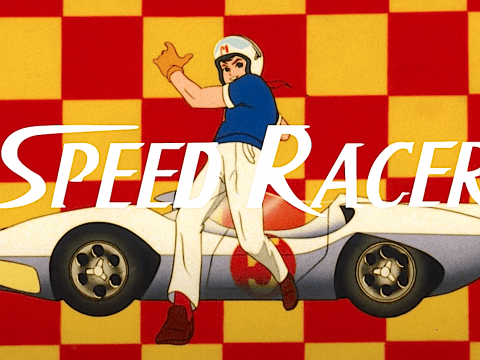
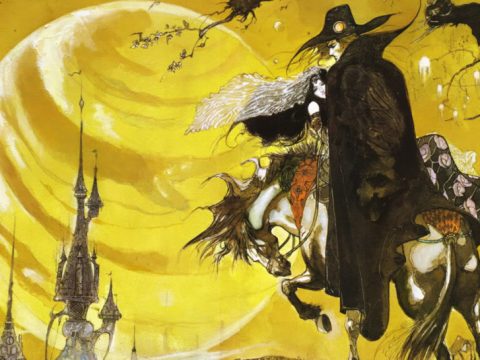
![[Review] Gatchaman Collectors Edition [Review] Gatchaman Collectors Edition](https://otakuusamagazine.com/wp-content/uploads/2019/08/91BpH3NAsTL._RI_.jpg)
